Yucun benefiting from better environment
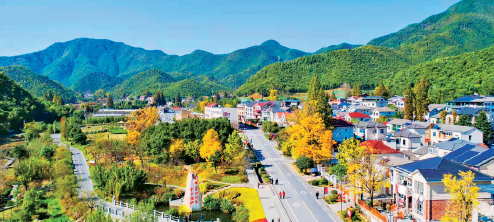
Yucun is now a beautiful and prosperous village in Anji county, Zhejiang province. XIA PENGFEI/FOR CHINA DAILY
Village an example of 'lucid waters and lush mountains are invaluable assets'
Lucid waters flow among rolling green hills, amid farmlands and gardens crisscrossed with winding paths. This is the scene of Yucun, a village in Anji county, Zhejiang province, that offers a prime example of the concept that "lucid waters and lush mountains are invaluable assets".
The Yucun of today is connecting people to nature and tapping into their rural nostalgia, but the village also has a bleak past. In the 1980s and 1990s, local residents relied on mining and cement manufacturing to become better off. However, the price they paid was foul air, tainted waters, and mountains shrouded in dust.
After 2003, Yucun began to shut its mines and cement plants, and took the lead in developing a beautiful countryside. For over a decade to follow, the people of Yucun have put the concept of "lucid waters and lush mountains" into practice, and have followed a sustainable development path featuring a beautiful environment, thriving businesses, and prosperity for ordinary people.
The narrow village roads of the past have been replaced by broad and smooth avenues. The old cement plant has been dismantled, and its grounds resown as colorful fields and gardens. More than 33 hectares of land has been turned into rapeseed fields and lotus ponds based on designs for the village.
Yucun has also gradually developed a leisure tourism industry chain, based on outdoor adventure programs, mountaineering and fishing, fruit and vegetable picking, and many other activities of agritourism.
Today, Yucun is no longer a quarry-based economy but an ecology-based one. It has transformed from a polluted village into a 4A scenic area, a national model village for beauty and livability, and one of the best tourism villages recognized by the World Tourism Organization.
With a beautiful environment, convenient transportation, and a full complement of services, this once silent mountain village now bustles with energy, welcoming more tourists with each passing year.
Pan Chunlin, the owner and operator of the local Chunlin Mountain Villa, has established a farmstay alliance to help more villagers realize prosperity. He has also opened a travel agency and cultural development company to provide a full range of services for all visitors to the village, whether for tourism or research purposes.
Nowadays, it is common to hear residents mention such neologisms as the "dual carbon strategy", "zero carbon village", and "carbon sink".
They have learned that local bamboo forests can absorb carbon dioxide and serve as carbon sinks. Through carbon sink trading, residents cannot only receive rent and earn wages as forest wardens, but also gain a stake in returns on carbon sinks by becoming shareholders. Thus the road to ecological prosperity continues to widen for the villagers.
There is a common saying that Yucun is "rural but refined, country but cultivated". It is not only ideal for business and travel but also for living. It has revised its resident code of conduct and introduced special regulations governing a range of issues including land use, village life, consumer rights protection, and sanitation. Each household has also set its own "house rules", and displays them in a prominent position to remind each family member to follow these rules and promote positive family virtues.
To protect the natural environment, village residents took it upon themselves to establish an ecological protection team to deal with uncivilized behaviors among some visitors. "If tourists litter or discard their cigarette butts, we villagers will collect them and throw them in the garbage as soon as we see them," said Sheng Xiaomei, a resident in the village.
To develop a rural civility credit system, Yucun has launched the first "civility bank" initiative in Zhejiang province.
At the end of each quarter, the representatives of village residents conduct reviews based on core criteria set out in a civility pledge agreed on by residents, covering areas such as compliance with laws and regulations, ecological protection, and civility in one's business operations. These are then verified by the village Party branch and village committee. Villagers who meet standards can earn points, which can be used to access bank loans with preferential amounts and interest rates.
In recent years, a cultural center, a rural library, and an exhibition on Anji's green development have opened in succession. Such initiatives carry forward people's distinctive hometown memories and the hometown attachment they feel, and protect and promote local intangible cultural heritage. In 2017, Yucun won the "National Civilized Village "award, injecting further vitality into its development as a model of civility.
"One prosperous village does not constitute true prosperity; prosperity is genuine only if it is collective," said Wang Yucheng, Party secretary of the village. "As Zhejiang works to build a demonstration zone for common prosperity, Yucun will lead the way forward, serving as a pioneer and example."
The village has joined forces with four neighboring villages to establish a company and a regional alliance to promote common prosperity. By boosting resource integration, these joint efforts will harness the natural environment to develop the economy, according to Wang.
When talking about the alliance members, Wang said: "Yinkeng village is a film and television base, Maji has revolutionary resources, Henglu is rich in water resources, and Shanhe offers a wide range of supporting public services. Integrating the resources of each village will create a more diverse tourism sector and help attract more tourists."
Yucun Avenue, which starts in the village, is now fully open to traffic, linking all the five above-mentioned villages together to create a unique picturesque route of beautiful countryside and scenic spots.
Yucun village's tourist transport hub has also been relocated to a central site for all surrounding villages to ensure that they all receive a share of Yucun's tourist traffic.
In 2021, the village received nearly 900,000 tourist visits. Its collective economic income exceeded 8 million yuan, and villagers' per capita annual income was 61,000 yuan ($8,735).


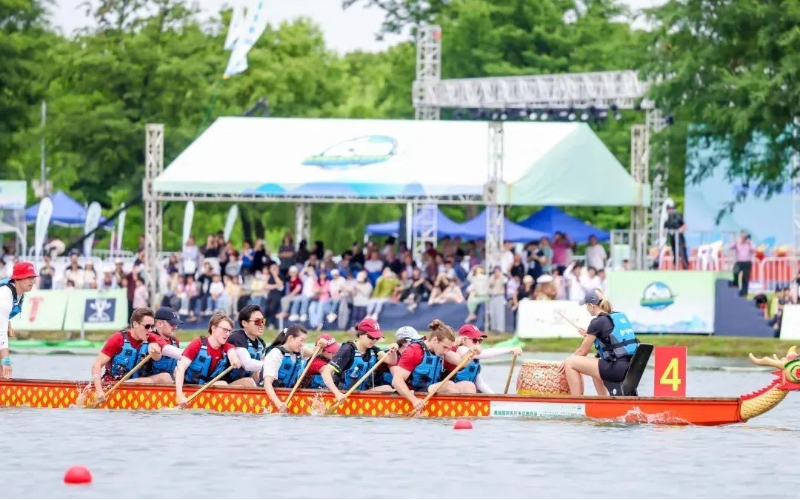
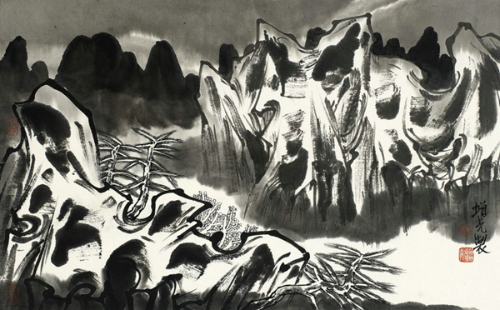
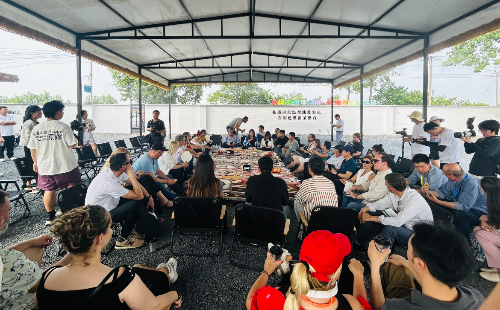
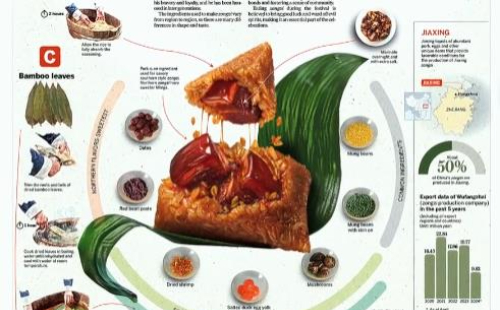 play
play